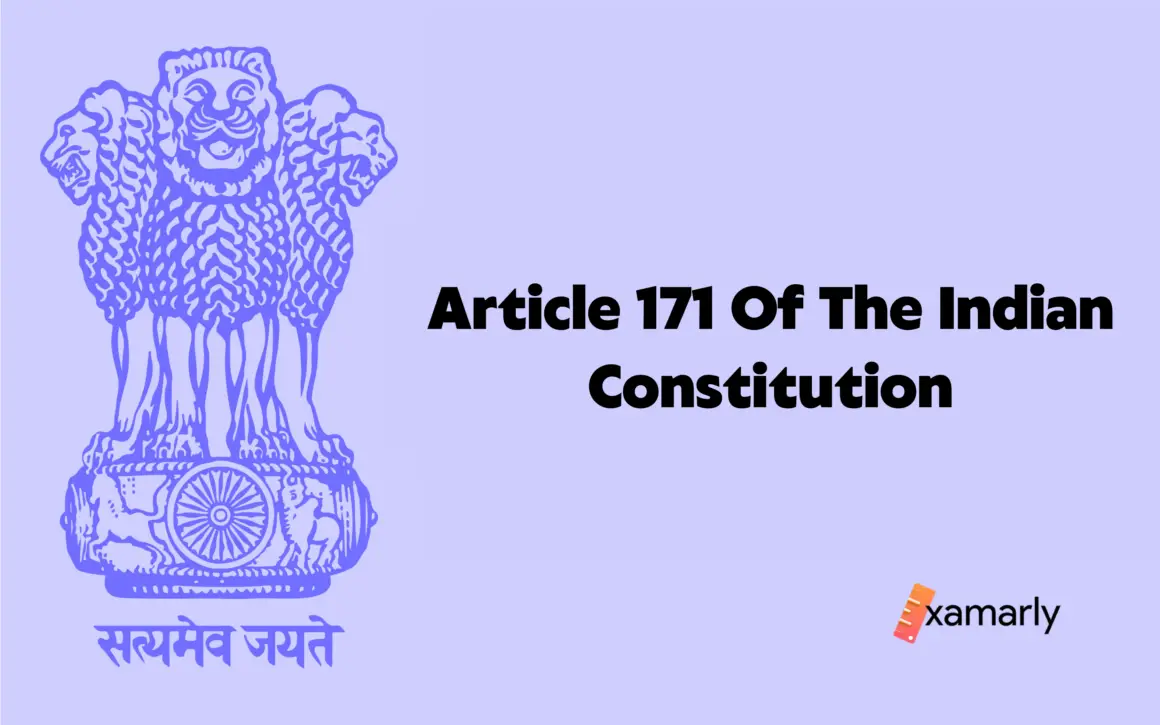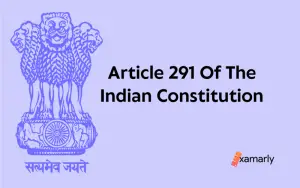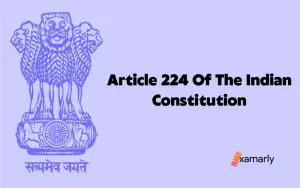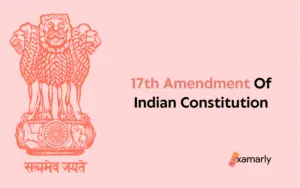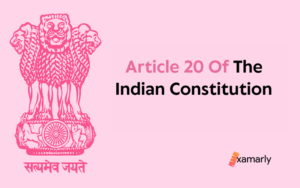Article 171 of the Indian Constitution talks in detail about the composition of the Legislative Councils.
It talks about the provisions and protocols that have to be taken into consideration.
Let us dig deep into Article 171 of the Indian Constitution and grasp all the concepts present in it.
Article 171 Of The Indian Constitution – In Detail
We will analyse each and every clause and its subclauses present in Article 171 of the Indian Constitution to understand it in detail.
Clause 1 – As it is & Explained
171. Composition of the Legislative Councils
(1) The total number of members in the Legislative Council of a State having such a Council shall not exceed one third of the total number of members in the Legislative Assembly of that State: Provided that the total number of members in the Legislative Council of a State shall in no case be less than forty
The first clause of Article 171 of the Indian Constitution says that the total number of members in the Legislative Council of a State that has such a Council should not be more than one-third of the total number of members in the Legislative Assembly of that State;
You Might Also Like – Article 170 Of The Indian Constitution
It also says that provided the total number of members in the Legislative Council of a State may in no case be less than forty.
In addition, the total number of members in the Legislative Council of a State may not exceed one-third of the total number of members in the Legislative Council of that State.
Clause 2 – As it is & Explained
(2) Until Parliament by law otherwise provides, the composition of the Legislative Council of a State shall be as provided in clause ( 3 )
The second clause of Article 171 of the Indian Constitution says that until and unless the Parliament lawfully makes any provisions or amendments, the composition of the Legislative Council of the State will be done as per the provisions and protocols as defined by the sub-clauses of the third clause of the Article 171 of the Indian Constitution.
Clause 3 – As it is & Explained
(3) Of the total number of members of the Legislative council of a State
(a) as nearly as may be, one third shall be elected by electorates consisting of members of municipalities, district boards and such other local authorities in the State as Parliament may by law specify;
(b) as nearly as may be, one twelfth shall be elected by electorates consisting of persons residing in the State who have been for at least three years graduates of any university in the territory of India or have been for at least three years in possession of qualifications prescribed by or under any law made by Parliament as equivalent to that of a graduate of any such university;
(c) as nearly as may be, one twelfth shall be elected by electorates consisting of persons who have been for at least three years engaged in teaching in such educational institutions within the State, not lower in standard than that of a secondary school, as may be prescribed by or under any law made by Parliament;
(d) as nearly as may be, one third shall be elected by the members of the Legislative Assembly of the State from amongst persons who are not members of the Assembly;
(e) the remainder shall be nominated by the Governor in accordance with the provisions of clause ( 5 )
The third clause of Article 171 of the Indian Constitution lays down all the provisions and protocols that are the mandate to compose the Legislative Council of the State.
Let us have a closer look at all these sub-clauses one by one and understand them.
(a) one-third shall be chosen by electorates made up of members of municipalities, district boards, and such other local authorities in the State as Parliament may by law define.
(b) as close as possible, one-twelfth shall be chosen by electorates made up of people who live in the State and have been graduates of a university in India for at least three years. Also, who have had qualifications for at least three years that are the same as being a graduate of such a university, as set out in a law made by Parliament.
(c) electorates consisting of individuals who have been engaged in teaching for at least three years in such educational institutions within the State, not lower in standard than that of a secondary school, as may be defined by or under any legislation adopted by Parliament
(d) Approximately one-third of the members of the Legislative Assembly of the State must be chosen by the members of the Legislative Assembly of the State from among individuals who are not members of the Assembly.
(e) the Governor is responsible for making nominations for the other positions in line with the requirements of clause ( 5 ) of Article 171 of the Indian Constitution.
Clause 4 – As it is & Explained
(4) The members to be elected under sub clauses (a), (b) and (c) of clause ( 3 ) shall be chosen in such territorial constituencies as may be prescribed by or under any law made by Parliament, and the election under the said sub clauses and under sub clause (d) of the said clause shall be held in accordance with the system of proportional representation by means of the single transferable vote
The fourth clause of Article 171 of the Indian Constitution says that all the members whose election fall under the provisions mentioned in the sub-clauses (a), (b) and (c) of clause (3) of Article 171, will have to be chosen only in those territorial constituencies that are defined by the Parliament lawfully.
It also says that the elections that are to be held and is defined under the sub-clause (d) of the Article 171 of the Indian Constitution should only be held according to the system of proportional representation by the means of single transferable vote.
Clause 5 – As it is & Explained
(5) The members to be nominated by the Governor under sub clause (e) of clause ( 3 ) shall consist of persons having special knowledge or practical experience in respect of such matters as the following, namely: Literature, science, art, co operative movement and social service
The fifth clause says that the members that have to be nominated by the Governor as we saw in the sub-clause (e) of Clause (3), will have to have a piece of special knowledge or hands-on experience in the areas like Literature, science, art, co-operative movement and social service.
If the members fulfil all the criteria mentioned above, then only he will be eligible to be nominated by the Governor.
Summing Up
We can conclude from Article 171 of the Indian Constitution that there are some well-defined protocols that have to be followed while electing the members for the Legislative Council of the State.
Similar to the Houses of Parliament in union government, the Houses of the state also is of very high regard and the members are to be elected with all the provisions defined by the Parliament.
We also saw that the Governor has the authority to select some of the members and such members who have a special kind of knowledge in some specific areas of society.
FAQs
Which state has no Legislative Council?
Uttarakhand state does not have Legislative Council.
What is the Legislative Council of a state called?
State Legislative Council is called Vidhan Parishad, or Saasana Mandali. It is the upper chamber in those Indian states with a bicameral legislature; the State Legislative Assembly is the lower house.
What is the head of the Legislative Council called?
The head of the Legislative Council is called the Chairperson.
Who can abolish a state legislative council?
On the suggestion of the state legislative assembly, the Legislative Council of a state may be established or dissolved by the Parliament. The legislative council cannot include more than one-third of the legislative assembly’s membership.
Why is Legislative Council called a permanent body?
A state legislative council is a continuous chamber, which is to say that it is a permanent body that cannot be disbanded. Members hold office for six years, and one-third of them resign every two years; nonetheless, the house is never dissolved. However, it may be eliminated if considered appropriate and required.
Which are the 6 states has Legislative Council?
Six of the 28 states have a State Legislative Council as of 2022. These include Andhra Pradesh, Karnataka, Telangana, Maharashtra, Bihar, and Uttar Pradesh.


